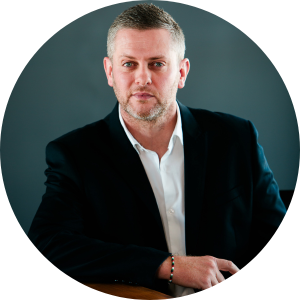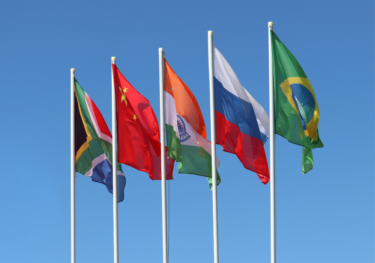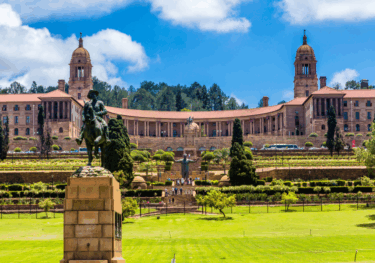Blog | 23 Aug 2023
Friend or foe? Foreign policy takes centre stage

Louw Nel
Senior Political Analyst, OE Africa

South Africa’s preparations for the 15th Brics Summit in August, which the country is hosting, have been overshadowed by the International Criminal Court (ICC) and the warrant of arrest it issued for one of the expected attendees, Russia’s President Vladimir Putin, on charges of war crimes. Domestic and foreign critics have accused Pretoria of being much too cosy with Moscow, notwithstanding official assurances that South Africa is neutral in the Russia/Ukraine conflict, and Washington’s ambassador to the country caused a diplomatic storm in May when he claimed that South Africa had supplied Russia with weapons. Denials have since given way to a diplomatic charm offensive with South African officials trying to temper the concerns of the country’s Western partners, who account for much of its trade, and its Brics partners, who are poised to welcome new members.
A peace initiative spearheaded by President Cyril Ramaphosa saw several heads of state travel with him to Ukraine and Russia on a ‘peace mission’ in June, but the initiative was undermined by lukewarm support, logistical issues, and a generally cold reception by the warring sides. Mr Ramaphosa will be joining numerous African heads of state at the upcoming Russia-Africa Summit in St Petersburg before returning home to lay out the red carpet for visiting Brics heads of state (with the exception of Mr Putin, who will not be attending).
Deputy President Paul Mashatile finds himself in the public spotlight, but not for the reasons he would have hoped. The man who deputises for Mr Ramaphosa at the Union Building but also at the headquarters of the ruling African National Congress (ANC) has had his lavish lifestyle choices – and past – scrutinised. The question on everyone’s lips seems to be: who is Paul Mashatile, the man who would be president?

To download the full political report click below.
Author

Louw Nel
Senior Political Analyst, OE Africa

Louw Nel
Senior Political Analyst, OE Africa
Cape Town, South Africa
Louw is the senior political analyst at Oxford Economics Africa. He joined the company in 2020 after five years with South Africa’s official opposition party, serving as its operations director at Parliament. He has an obsessive relationship with African politics and covers South Africa and several other countries.
Tags:
You may be interested in

Post
Africa: A continent besieged along old fault lines
Africa has, once again, taken centre stage as countries vie for the top spot. The playing field has shifted slightly, and the rules of engagement have moved more toward the economic arena. In this Research Briefing, we explore the economic and political ties between Africa and China, the US, Europe and Russia as the continent navigates the new multi-polar world order.
Find Out More
Post
A year older, none the wiser ‒ a fractious GNU stumbles on
South Africa's Government of National Unity (GNU) has struggled over the one year of its existence, largely because of the ad hoc manner in which it was assembled.
Find Out More
Post
The Green Leap – Project bankability takes centre stage
The report argues that enhancing project bankability should become a main policy priority as part of climate investment endeavors.
Find Out More
Post
What does the critical minerals boom mean for Africa? | Greenomics podcast
As demand grows for critical minerals like cobalt, copper, and lithium, African nations are navigating opportunities and risks—from boosting local employment to managing geopolitical tensions and environmental concerns.
Find Out More